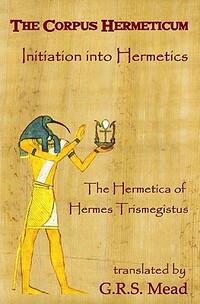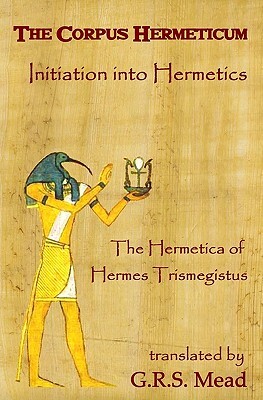14.50
2 - 4 Weken
The fifteen tractates of the Corpus Hermeticum, along with the Perfect Sermon or Asclepius, are the foundation documents of the Hermetic tradition. Written by unknown authors in Egypt sometime before the end of the third century C.E., they were part of a once substantial literature attributed to the mythic figure of Hermes Trismegistus, a Hellenistic fusion of the Greek god Hermes and the Egyptian god Thoth. The treatises we now call the Corpus Hermeticum were collected into a single volume in Byzantine times, and a copy of this volume survived to come into the hands of Lorenzo de Medici's agents in the fifteenth century. The treatises divide up into several groups. The first (CH I), the "Poemandres", is the account of a revelation given to Hermes Trismegistus by the being Poemandres or "Man-Shepherd", an expression of the universal Mind. The next eight (CH II-IX), the "General Sermons", are short dialogues or lectures discussing various basic points of Hermetic philosophy. There follows the "Key" (CH X), a summary of the General Sermons, and after this a set of four tractates - "Mind unto Hermes", "About the Common Mind", "The Secret Sermon on the Mountain", and the "Letter of Hermes to Asclepius" (CH XI-XIV) - touching on the more mystical aspects of Hermeticism. The collection is rounded off by the "Definitions of Asclepius unto King Ammon" (CH XV), which may be composed of three fragments of longer works.

- : G R S Mead
- : Createspace Independent Publishing Platform
- : 9781441436573
- : Engels
- : Paperback
- : 124
- : december 2008
- : 150
- : 203 x 133 x 7 mm.
- : Eclectische en esoterische religies en geloofssystemen; Magie, alchemie en hermetisch gedachtegoed
